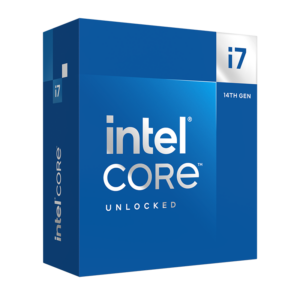Whether you’re a complete beginner or a veteran PC expert who wants to catch up on your hardware knowledge, our dedicated ‘Anatomy Of’ series is just for you. We’ve crafted this range of in-depth articles to highlight what goes into all the important PC components.
In this blog post, we’ll be covering the CPU.


What is a CPU?
The CPU, or central processing unit, is often referred to as the brain of a computer. The CPU stores, processes, and communicates information to the rest of your PC. It is typically situated at the centre of the motherboard with its own dedicated CPU cooler to keep it performing at optimum temperatures.
A CPU consists of multiple different transistors etched onto a silicon wafer. These act as electronic switches allowing the processor to effectively ‘turn on’ to process the information and ‘turn off’ once the task is complete.
You can read more about the importance of the processor within your gaming PC in our dedicated blog post.

CPU Grid Array: LGA vs PGA
Processors from Intel and AMD differ in their CPU grid array. Typically, Intel CPUs utilise an LGA whereas AMD processors feature PGA. The only exception to this is the AMD Ryzen 7000, 8000, and 9000 Series which have an LGA array.
Land Grid Array (LGA):
In an LGA, the pins are on the base of the motherboard, not the processor. The corresponding CPU will feature the same number of contact points as connectors.
- Not as fragile as PGA
- Can hold more pins
- Smaller pins – easy to bend
Pin Grid Array (PGA):
A PGA utilises small pins on the CPU as the connectors. These are typically arranged in a square grid. The number and arrangement of the pins can vary between generations of processors, which is why most AMD CPUs each require a different type of socket.
- Easier to install
- Larger pins
- Not as durable as LGA
Intel vs AMD:
We’ve included some handy tables down below detailing the different sockets and number of pins in both Intel and AMD processors.
Intel:
| Socket | Number of Pins | Generation of CPU |
|---|---|---|
| LGA 1151 | 1151 | 7th, 8th, 9th Core, Pentium and Celeron |
| LGA 1200 | 1200 | 10th, 11th Core, Pentium, and Celeron |
| LGA 1700 | 1700 | 12th, 13th, AND 14th Core, Pentium, and Celeron |
| LGA 2066 | 2066 | Intel and Xeon Workstation |
| LGA 1851 | 1851 | Core Ultra |
AMD:
| Socket | Number of Pins | Generation of CPU |
|---|---|---|
| AM4 | 1331 | 1000, 2000, 3000, 4000, 5000 Series Ryzen and Athlon |
| AM5 | 1718 | 7000, 8000, 9000 Series Ryzen and Athlon |
| TR4 | 4094 | 1000 and 2000 Series Threadripper |
| sTR4 | 4094 | 3000 Series Threadripper |
| sTR5 | 4844 | 7000 Series Threadripper and Threadripper Pro |
Key Features
Instruction Set Architecture (ISA):
The ISA is the blueprint for how the CPU operates and interacts. There are different types of ISA, however the most common is x86, which is typically found in laptops and desktops, or ARM, found in mobile devices.
Control Unit:
The datapath is where all the data flows through as its being processed. This receives the information, processes it, and then sends the data to the right place.
Cores & Threads:
Found in every type of processor are the cores and threads.
The cores are physical processing units, responsible for completing multiple tasks simultaneously. Whereas threads are virtual and are responsible for managing these tasks.
Cache:
The cache is a form of onboard memory stored on the processor. It stores copies of any data that is frequently used.
Heat Spreader:
All processors come with an integrated heat spreader to work in tandem with the dedicated CPU cooler to ensure temperatures remain at optimum levels to avoid overheating and performance loss.

Shop All Processors
If your gaming PC is lacking in processor power, then it’s time for an upgrade! We’ve included our top recommendations down below from the AMD Ryzen 7000 Series and Intel 14th Gen. Alternatively, you can also opt to shop our full range of AMD and Intel processors.

AMD Ryzen 7 7700 Processor
- AMD Ryzen 7000 series
- 8 cores and 16 threads
- 3.80GHz base clock
- Up to 5.3GHz boost clock
- AM5 socket
Intel i7 14700KF Processor
- Intel 14th Gen
- 20 cores and 28 threads
- 3.40GHz base clock speeds
- 5.6GHz boosted clock speeds
- LGA 1700 socket

Touch Up Your PC Hardware Knowledge
Looking to touch up your knowledge of PC hardware? Check out some other articles in our ‘Anatomy Of’ series.



